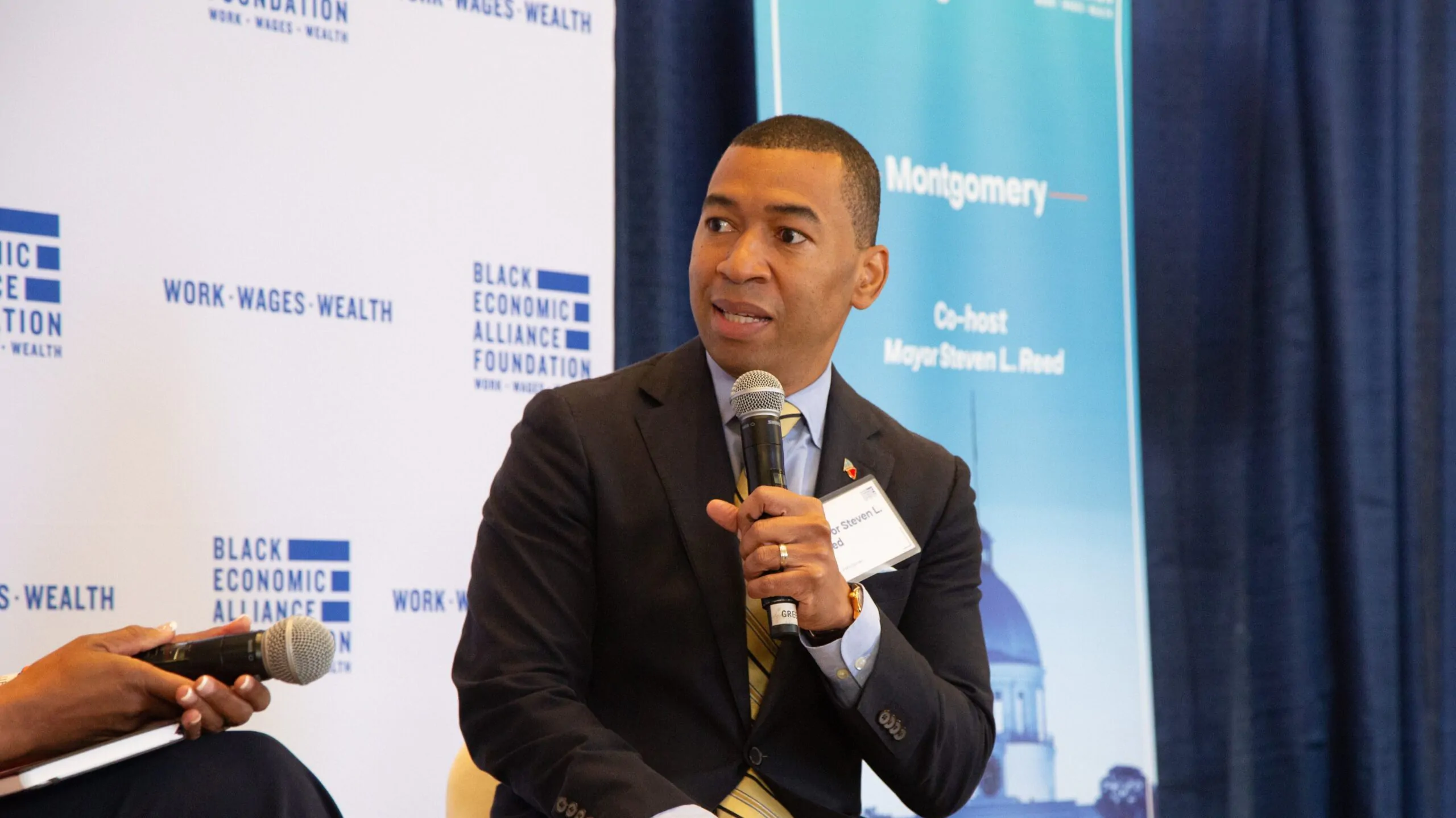Montgomery’s crime problems are improving, thanks to the efforts of a multi-agency task force, but there’s still lots of room for improvement, Montgomery Mayor Steven Reed said.
During an interview with the Alabama Politics This Week podcast, which is available Friday, Reed addressed the lingering crime issues, the sources of the problems and the various initiatives that are being explored to address those sources. That includes a city-run school system—an issue that Reed says he still supports.
But the mayor also noted that progress is being made, and the Montgomery Metro Area Crime Suppression (MACS) task force is seeing results.
“Through the first six months of the year, we’ve been doing pretty good, and I think the data proves that,” Reed said. “To see overall crime—violent crime in particular—down 28 percent. To see non-fatal shootings down 22 percent. Robberies down over 40 percent. Homicides down 12 percent. Those are very good trends. We would like to see those down 100 percent. We would love to live in that type of a world.”
Reed also addressed a recent uptick in violence, which culminated in a string of shootings earlier this month and resulted in the Montgomery City Council and Reed signing a youth curfew into law. Reed said he had hoped to avoid such a curfew and that parents would “take responsibility” for their children, but that hadn’t happened.
He also noted that the crime issue was especially important to him as Montgomery’s first Black mayor, because much of the crime that is occurring in the city is disproportionately affecting Black families—whether they be victims or perpetrators.
“For me, it’s personal because you see far too many Black men and Black boys that are impacted by violent crime and too often on the wrong side of that,” Reed said. “And Black women and Black girls sort of being right after that. So it’s a personal thing for me, because I feel a higher level of responsibility.
“We want all of our residents—Black, white, Latino, Asian, Native American, I mean, we want everybody to be safe, but far too often, again, data tells us that too many are African American men and women. And we have to figure that out through our churches, through our education system, through jobs and other economic opportunities and then just getting on the ground as well to try to disrupt the cycle of violence.”
One of the more controversial ideas for addressing the education problems within the city that often lead to crime and violence is forming a city-run school system and leaving the county system. That issue picked up particular steam this year after the Montgomery County School Board essentially pushed out a very popular superintendent whose leadership had brought noticeable student gains.
Reed, along with other city leaders, made no secret that they believed the move to be a mistake that would set the school system back. In the aftermath, they also made no secret of their desire to explore a city-run system. Reed said that willingness has not subsided in the months since.
“The city school system is certainly an option that I intend to explore,” Reed said. “It’s one I intend to explore legislatively. And I’ve already talked with several organizations about helping us inform the city and the community about what it would look like and what it wouldn’t look like.
“I think all options have to be on the table because we don’t have the level of trust and confidence in the board leadership to take the challenges that we already have … I believe in public schools, but you’ve got to have the right governance. You’ve got to have the right model. And you’ve got to be able to be nimble to adapt where kids are today. I spoke about wealth and health earlier. You can’t get to the wealth part if people aren’t educated. You can’t get there if you have chronic absenteeism. You can’t get there if you have a truancy issue. You can’t get there if you don’t have teachers showing up and being accountable. You can’t get there if the parents aren’t interested, the staff and the principals of those schools aren’t interested. And if your board does not have the best practices in mind in terms of what has been helping in changing the lives of young people of all backgrounds.”
Reed said city officials and local lawmakers have already started discussions about moving forward with the city system.
To hear Reed’s full interview, along with the rest of the episode, go to the Alabama Politics This Week website or subscribe on your preferred podcast platform.
(Except for the headline, this story has not been edited by PostX News and is published from a syndicated feed.)

